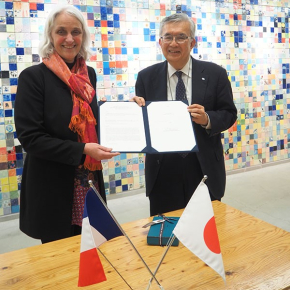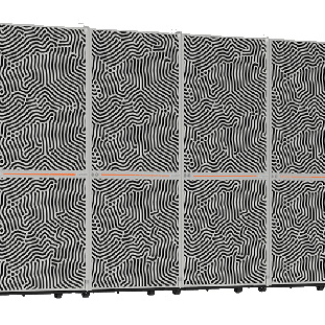
A new French-Japanese laboratory for particle physics
|
|
The CNRS and the KEK laboratory in Japan are joining forces to create the Toshiko Yuasa Laboratory, an International Research Laboratory devoted to the study of particle physics. The goal is to strengthen the ties that already exist between the two institutions, with a view to creating new synergies and original research. The laboratory, which is located in the city of Tsukuba, will open its doors in early August.
Strong ties have already existed for 15 years between the CNRS and the KEK laboratory, a national research organization whose goal is to support particle physics research in Japan. The country’s cutting-edge particle physics experiments and facilities make it an essential partner for the CNRS.
CNRS and KEK scientists will pursue new collaborations and original research by combining their know-how and expertise within a new international research laboratory. They will focus on identifying processes beyond the Standard Model of particle physics, which is the current framework for describing the infinitely small.
The laboratory will explore four areas of research:
- the Intensity Frontier, with the Belle II and Comet experiments, along with experiments on neutrinos;
- the Energy Frontier, with the Atlas experiments at CERN, and the project for a future Higgs boson factory;
- the origins of the Universe with the LiteBIRD experiment, a Japanese space project studying the polarisation of the Cosmic Microwave Background; and
- developments in theory, instrumentation, and accelerator physics.
The TYL will develop new collaborations by posting French researchers for long-terms stays in Japan.


